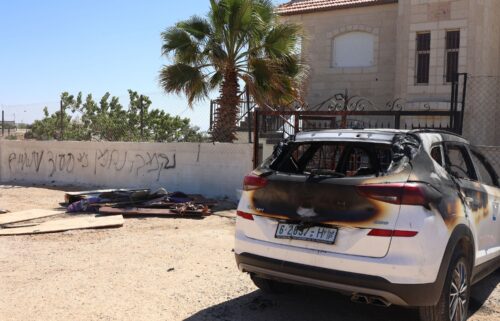California disaster relief slowly pouring into the hands of undocumented people
WATSONVILLE, Calif. (KION) - Victims of the flooding in Pajaro are still picking up the pieces after their home was destroyed.
Governor Gavin Newsom allocated $95 million to undocumented flood victims.
So far, 18 million have been handed out across California.
Fernando and his family have been living in hotels since the flooding. The hotel stays are a temporary fix as they aren't cheap.
"We've been bouncing from hotel to hotel you because of the prices. So some people have been taking it upon themselves to raise the prices due to all the people needing a place to stay in a hurry to the emergency of the floods that happened then," says Fernando Magallon, a flood victim living in a hotel.
He says it was not until recently that non-profits have been lending a helping hand.
"I think it definitely sucks that it took this long for assistance to come to us, instead of having to come look for it ourselves," says Magallon.
According to CalMatters, about $1.1 million dollars have been distributed from the community action board of Santa Cruz to people in Monterey and Santa Cruz Counties, about 350,000 from ventures for those in Monterey, Santa Cruz and San Benito Counties, and 75,000 from Catholic Charities Diocese of Monterey to multiple counties as well.
Non-profits are responsible for distributing the funds.
"We have professionals that are there to help. And we also have, they have phone numbers, which they can find pretty easy by Google. and, you know, so they're, they're very, eager to help," says Deacon David Ford, Vice Chancellor for the Diocese of Monterey.
Deacon Ford with the Diocese of Monterey explains why funding is being distributed by the non-profits and not the state.
"That's I think the important thing to say they don't have to go through any government kind of thing because they're fearful of deportation and that kind of thing," says Ford.
Qualifying families can receive up to $4,500 in state aid, while individuals can qualify for $1,500.
The non-profits contracting with the state interview the applicants in person and provide them with preloaded debit cards or checks.

